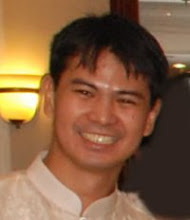Continuous Learning
"An apple a day, makes 365 apples a year. Now replace the word 'apple' with 'idea'."
--Pilosopong Rodec
A technopreneur just needs to know and understand one idea per day. It doesn't have to be a complex idea or an idea directly related to enterprise development. What is important is for him to develop curiosity and an innate yearning to learn. It might seem too slow but one would be surprised how much one could learn in one year, five years, ten years. And it's not true that the technopreneur must be able to master all aspect of enterprise growth, he will hire managers for each of the area, but he must know enough to be able to tell if their strategy in a particular area is in the right direction or not.
This concept is not only true for the technopreneur or the would be technopreneur. It should be practiced even by his employees. It must be something preached by the technopreneur. For an organization to grow, each employee must also grow and practice continuous learning.
Continuous Improvement
Another key concept in the knowledge economy is Continuous Improvement. It is not enough that a company has a good product, a good manufacturing system, a good marketing strategy, etc. They should continuously try to improve on their systems and methodologies. In this age of rapid innovation, one has to run just to stay in place. A company in the top 5 position in their industry group could be overtaken by a new company in a matter of months if they stop improving their processes. There are numerous ideas and theories in Total Quality Management from American and Japanese authors that could guide the technopreneur like Dr. Edward Deming, Joseph Juran, Philip Cosby, Tom Peters, Peter Senge and Kauro Ishikawa. Their ideas are the key to the industrialization of Japan and the United States.
Although most concepts seems difficult to implement, the companies that implemented it reports drastic improvements in the quality and quantity of the product or service they provide, happier employees and more satisfied customers.
One simple implementation of Continuous Improvement is practiced by the University of the Philippines Mountaineering Association or more popularly known as UPM (http://www.upmounteineers.org.ph). It is a mountaineering organization that has established and set the standards for mountaineering in the Philippines. Of the six Filipinos able to climb Mt. Everest, three of them are members of UPM. Although they are not aware of it, they practice the Plan-Do-Check-Act (PDCA) cycle of Dr. Edward Deming.
Before any Climb, we conduct a Pre-climb Meeting to discuss PLANS for the climb (itinerary, terrain, transportation, meals assignment, climb equipment, groupings, etc). This planning and preparation is critical of our success or failure as we DO the climb. A few days after the climb, we conduct a Post-Climb meeting to CHECK and assess the climb. What are the things we did right? What are the things wrong? How could we correct them? These lessons are ACTED upon and put to use in the next climb. It is a simple strategy but after 30 years of repeating this cycle for every climb, UP Mountaineers is well respected by other mountaineering organizations.

No comments:
Post a Comment